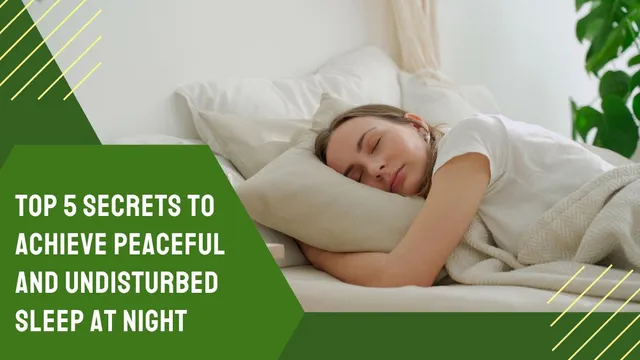- By Priyanka Munshi
- Fri, 09 Aug 2024 10:58 AM (IST)
- Source:JND
The body can rest, heal, and prepare for the next day when it gets a good night's sleep. During sound sleep, your body goes through several deep sleep stages that aid in physical recovery, while your brain processes and stores memories. However, sleep disruptions caused by stress, noise, or other factors can result in poor quality sleep, making it harder to focus, work efficiently, and manage emotions during the day.
Getting a good night's sleep without interruptions is essential for overall health and well-being. A lack of restful sleep can eventually weaken the immune system, increase the risk of chronic illnesses, and negatively impact mental health, leading to anxiety or depression. Here are a few simple and effective methods to ensure a good night's sleep without becoming a night owl.
Exercise
Regular physical activity, such as walking, promotes the release of sleep hormones like melatonin and reduces nighttime awakenings. It's important to schedule exercise to support the body's natural circadian rhythm.
Light Meal
To avoid staying awake until breakfast, refrain from eating heavy meals two to three hours before bed, and opt for small, healthy snacks instead.
Also Read: 6 Clear And Simple Signs Of Negative Energy In A Person
Avoid Alcohol And Caffeine
Wine, chocolate, alcohol, and spicy or acidic foods should not be consumed as bedtime snacks since they contain caffeine and other stimulants that can interfere with sleep. If you have heartburn, limit spicy or acidic foods.

Lack of sleep can weaken the immune system, increase chronic illness risk, and cause anxiety or depression. (Image Credit: Canva)
Manage Stress
Stress can contribute to anxiety during the day and disturb sleep at night. Before going to bed, take time to relax with deep breathing exercises or other relaxation techniques to promote restful sleep and reduce anxiety.
Also Read: 5 Remarkable Mental Health Benefits Of Journaling Daily for 30 Minutes
Create A Peaceful Bedroom Environment
Distractions like smart devices and televisions can lower sleep quality. Make your bedroom cozy, quiet, cool, and dark to encourage the onset of sleep.
(Disclaimer: This article is for informational purposes only. It is not a substitute for professional advice, diagnosis or treatment.)

